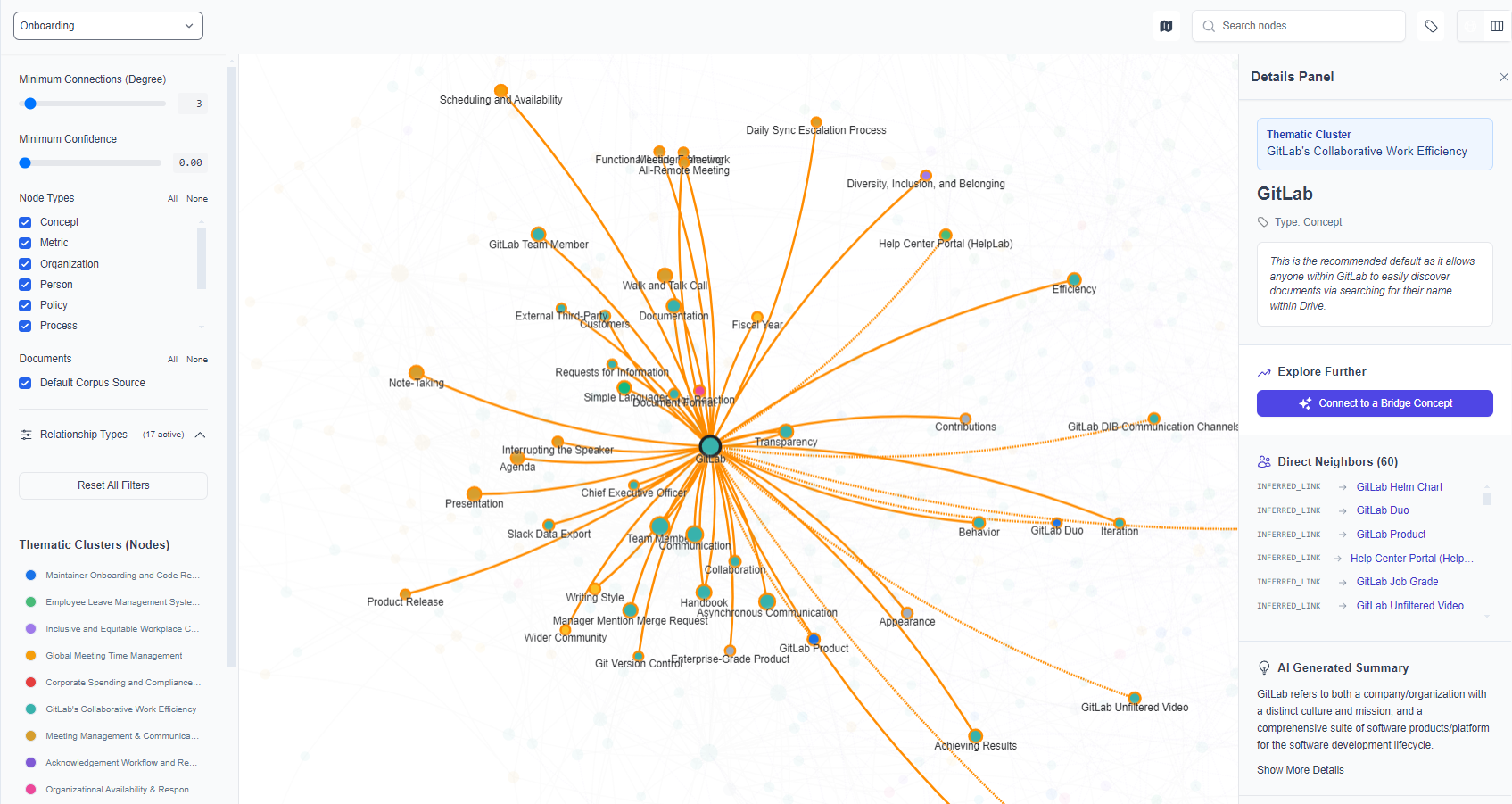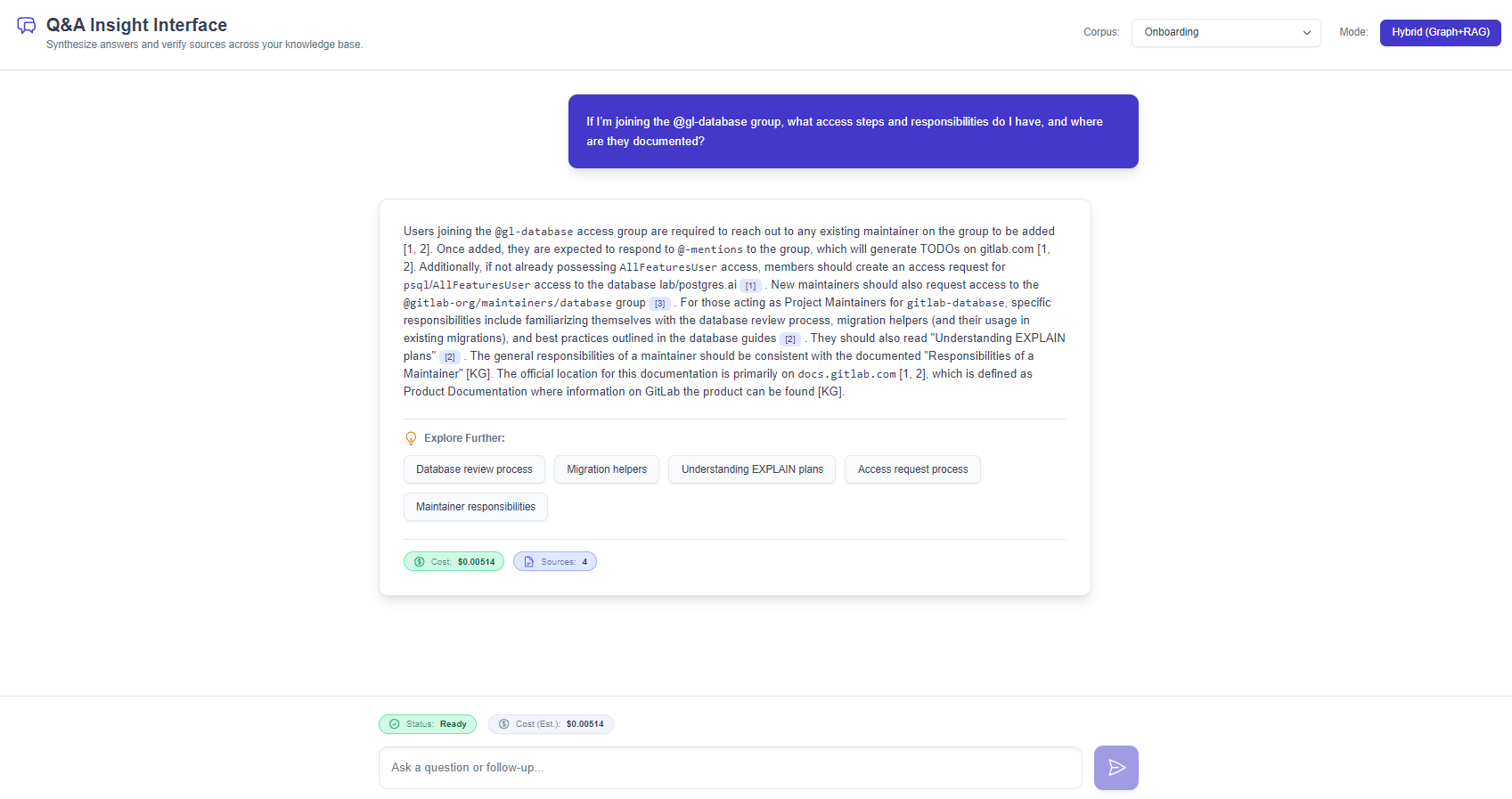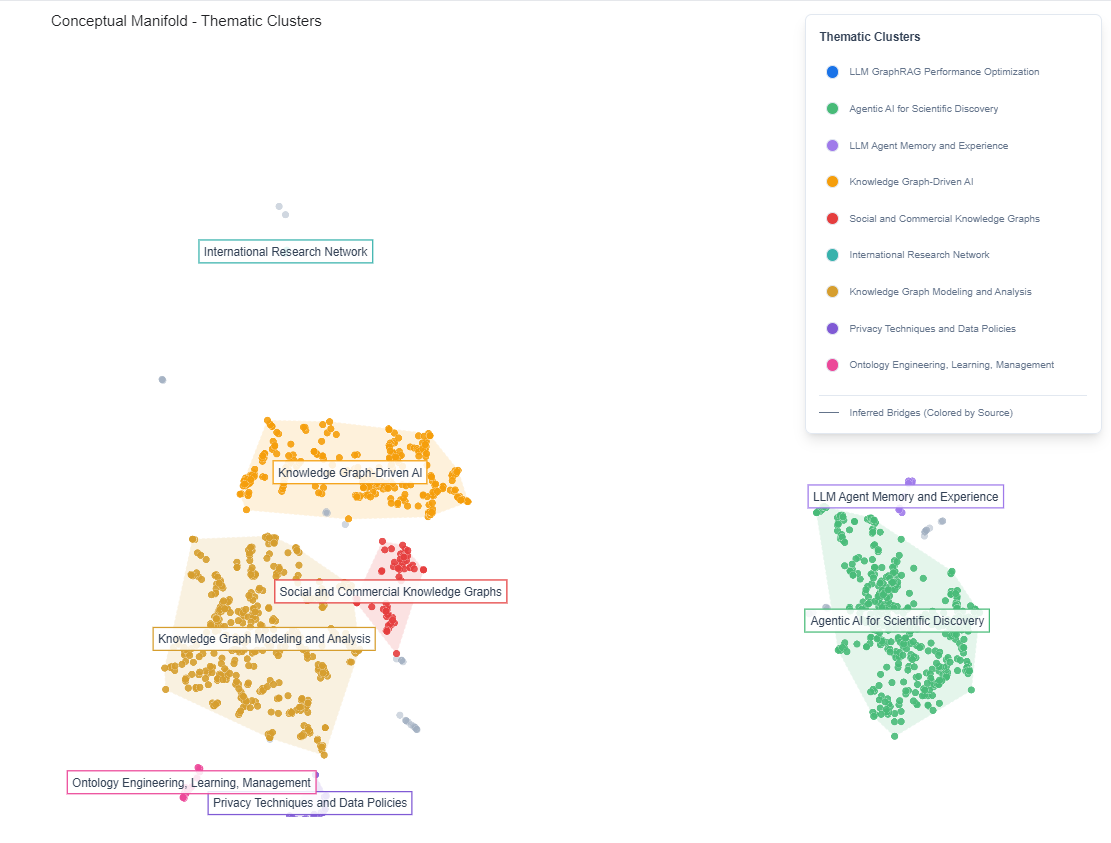AI Insight Engine: AI-Powered Performance Support for Organizations
The Business Problem:
New hires take 3-6 months to become productive because institutional knowledge is scattered across systems. Senior staff spend hours answering repetitive questions. When key people leave, critical expertise disappears with them, costing organizations millions in lost productivity.
The AI Solution:
AI-powered platform that synthesizes scattered documentation into a unified, queryable knowledge base. Uses sophisticated knowledge graph technology to provide instant answers with full source citations, while maintaining fidelity to your organizational expertise, not generic internet knowledge.
- • AI System Capability: Built using modern AI architecture and development practices, demonstrating that L&D leaders can implement sophisticated AI solutions with the right approach and tools
- • Intelligent Synthesis: Custom-built knowledge graph construction with tiered LLM strategy, entity resolution algorithms, and "Global Brain" cross-document relationship inference
- • Business Impact: Reduces onboarding time from months to weeks, eliminates repetitive SME interruptions, preserves institutional knowledge during transitions
- • Proven Performance: 90% query resolution with complete source citations, enabling new hires to find authoritative answers independently



Knowledge Explorer: Browse and search through interconnected concepts
AI Q&A Interface: Get instant answers with full source citations
Knowledge Graph Manifold: Interactive 3D visualization revealing concept relationships